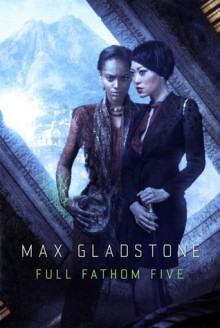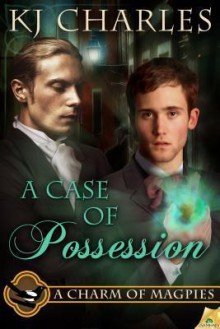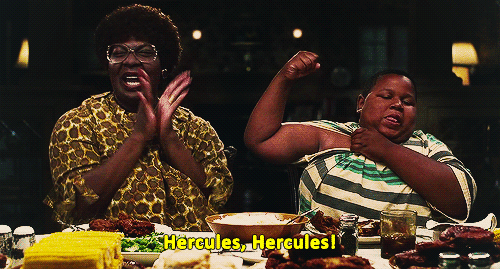

Im Rahmen meiner Mission, weibliche High Fantasy – Autorinnen ausfindig zu machen, stieß ich auf den Einzelband „Wheel of the Infinite“ von Martha Wells. Die Texanerin wurde in den letzten 25 Jahren für einige prestigeträchtige Awards der spekulativen Fiktion nominiert und unter anderem mit dem Locus, Nebula und Hugo Award ausgezeichnet. Warum hatte ich noch nie von ihr gehört? Wieso musste ich aktiv nach Frauen in der High Fantasy suchen, um über sie zu stolpern? Wells ist das Problem allzu bewusst. In einer Rede auf der World Fantasy Convention 2017 forderte sie ihre Hörer_innen auf, sich an all die vergessenen Frauen in der Geschichte und ihren Einfluss auf Wissenschaft und Kunst zu erinnern. Botschaft angekommen. Martha Wells ist eine perfekte Kandidatin für die Sektion der „schreibenden Schildmaiden“ in meinem Bücherregal.
Lange Zeit lebte Maskelle im Exil, fern ihrer Heimat Dulvapore. Sie wagte nie, in die mystische Stadt zurückzukehren. Zu schmerzhaft waren die düsteren Erinnerungen an den Wahnsinn, der sie als Verräterin und Mörderin brandmarkte. Nun führen sie die rätselhaften Wege des Schicksals an der Seite des zurückhaltenden Schwertkämpfers Rian erneut in die Straßen ihrer Jugend. Sie wurde einberufen, weil sie gebraucht wird. Der Höhepunkt der Hundertjahreszeremonie steht kurz bevor. Doch das Rad der Unendlichkeit, das die Welt alle 100 Jahre erneuert, zeigt unerklärliche schwarze Flecken. Maskelles Macht als Stimme der Ahnen ist vielleicht das einzige, das eine Katastrophe verhindern kann, denn wird der Zerfall nicht aufgehalten, bevor der Zyklus des Rades vollendet ist, könnte die Realität selbst irreparablen Schaden nehmen. Wird es Maskelle gelingen, sich ihrer Vergangenheit zu stellen und derselben Magie zu vertrauen, die sie einst betrog?
Ich hege den Verdacht, dass Martha Wells vielleicht ein wenig die Prioritäten verrutschten, als sie „Wheel of the Infinite“ schrieb. Das Buch begann sehr vielversprechend, entpuppte sich dann allerdings als seltsame Komposition, dessen Handlung völlig ungleichmäßig getaktet ist. Ich bin mir nicht sicher, ob die Autorin tatsächlich eine Geschichte erzählen wollte oder ob sie lediglich einen Rahmen für die Entwicklung ihrer Figuren und ihres Universums brauchte, denn diese beiden Punkte dominieren. Das ist für einen Einzelband eigenartig – normalerweise sind es Reihenauftakte, die sich der Etablierung der Umstände widmen. Möglicherweise wäre „Wheel of the Infinite“ als erster Band einer Reihe überzeugender gewesen, da Wells mehr Raum zur Verfügung gestanden hätte, um allen Aspekten ihrer Geschichte gerecht zu werden. Ich glaube, sie hat sich irgendwann in Worldbuilding und Charakterkonstruktion verloren, sodass die Handlung nur noch mitlief, was ihr im letzten Drittel des Romans auf die Füße fiel. Sie war zu langsam, zu zaghaft, und musste die Ereignisse, die bisher ohnehin einen geringen Stellenwert eingenommen hatten, überhastet zu einem Abschluss bringen. Ich kam deshalb nicht mehr wirklich mit und litt unter ernsten Visualisierungsschwierigkeiten. Bedauerlich, da ich bis dahin durchaus Freude an „Wheel of the Infinite“ hatte. Das gewissenhafte, subtile und kontinuierliche Worldbuilding imponierte mir und ich mochte die starke Protagonistin Maskelle, deren Lebenserfahrung ihre reife, erwachsene Ausstrahlung prägte. Maskelle ist nicht mehr jung und blickt auf eine bewegte, schmerzvolle Vergangenheit zurück. Vor vielen Jahren wurde sie in Dulvapore Opfer ihrer eigenen Magie, beging schreckliche Verbrechen und ist seit ihrer Flucht nicht mehr zurückgekehrt. Sie gilt als Ausgestoßene, wird aufgrund ihrer Verbindung zu den Ahnen jedoch noch immer mit Respekt und Ehrfurcht behandelt. In ihrer Rolle als „Stimme des Widersachers“ soll sie nun die Welt retten und das Rad der Unendlichkeit heilen, bevor es die Realität verändern kann. Ich habe das religiöse System, das dieser Ausgangssituation zugrunde liegt, nicht völlig verstanden. Mir war nicht klar, ob die Ahnen nun Geister oder Götter sind und ob diese Unterscheidung überhaupt von Bedeutung ist. Darüber hinaus wirkte es, als würde der Glaube an die Ahnen in anderen Gebieten des Universums nicht praktiziert. Generell schien die fernöstlich anmutende Stadt, die mich oft eher an ein Gemälde als an ein reelles Setting erinnerte, einen Sonderstatus aufzuweisen. Dulvapore ist fortschrittlicher, zivilisierter, kultivierter und friedlicher als der Rest der Welt, was Wells durch Maskelles Begleiter Rian, der aus einem fernen Königreich stammt und ihr als Referenz dient, betont. Rian unterstützt Maskelle bei ihren Bemühungen, die Zerstörung des Rades aufzuhalten und die Quelle seines Verfalls zu ermitteln. Stück für Stück finden sie Antworten, die mich verblüfften und erahnen ließen, wie sich „Wheel of the Infinite“ hätte entwickeln können, hätte Martha Wells eingangs zügiger gearbeitet. Sie zieht das Tempo gegen Ende rasant an; ich raste auf den finalen Showdown zu, an dem ich nicht teilnehmen durfte, weil alle Beteiligten ohnmächtig waren und befand mich plötzlich auf der letzten Seite. Vorbei.
Ich verstehe Martha Wells‘ Impuls, Figuren und Universum in „Wheel of the Infinite“ ausführlich zu erkunden. Maskelle und die Stadt Dulvapore sind zweifelfrei faszinierend. Letztendlich ist die Geschichte aber dennoch der wichtigste Aspekt eines Buches, den sie darüber sträflich vernachlässigte. Worldbuilding und Charakterkonstruktion sollten die Handlung niemals überstrahlen. Sie enttäuschte mich, weil dieser Einzelband unausgeglichen ist. Nichtsdestotrotz kann ich mich des Eindrucks nicht erwehren, dass „Wheel of the Infinite“ kein typisches Beispiel für Wells‘ schriftstellerisches Schaffen ist. Überwiegend erschienen ihre Werke im Kontext von Mehrteilern. Deshalb bleibe ich optimistisch und gebe ihr eine weitere Chance. Vielleicht kann mich „The Cloud Roads“ doch noch von ihr überzeugen.

 Log in with Facebook
Log in with Facebook 







 choices.
choices.




